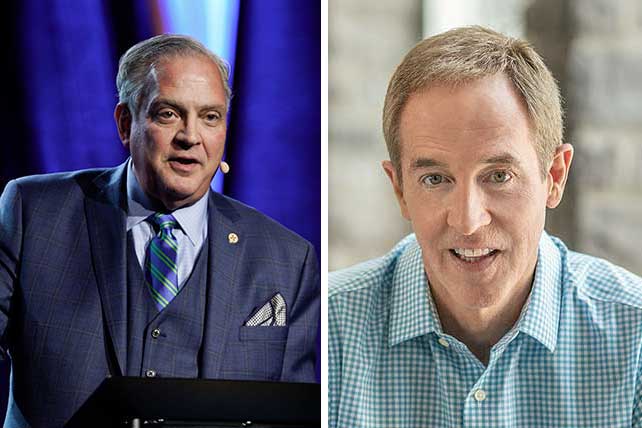The bond between a father and son is unique and unrivaled. A father is his son’s first hero, and a boy often grows up wanting to be just like him. Tragically, this connection, ideally grounded in love and security, is often unraveled by circumstances beyond a precious son’s control.
In America today, more than 25 million kids under 18 years of age are growing up in homes without their fathers. Whether the result of divorce, neglect, death, addictions or other circumstances, fatherhood abandonment has become the number one societal issue plaguing our nation. We’re witnessing the very foundation of family—which includes men of honor, integrity, character, and courage leading in their homes—being undermined and utterly destroyed.
The pain of rejection and unfulfilled expectations can cast long shadows over a man’s life, leaving deep wounds of anger and resentment and ultimately limiting his ability to develop into the man God designed him to be. Yet, as Christians, we’re called to a higher standard as men, one that challenges us—NO, it commands us—to embrace the transformative power of biblical forgiveness.
The devil wants men to remain wounded and sitting on the sidelines, but God has called us to something far greater. And here’s a truth bomb—America’s very survival hinges on stepping up and into this calling.
Biblical Forgiveness
Forgiving a father who was absent is a profound act of biblical obedience and it requires real courage. It’s a declaration that we are committing to break the cycle of pain and bitterness and to walk in the freedom of forgiveness. It’s an acknowledgment that we’re not defined by the actions of others, but by our God-given capacity for love and grace. Most importantly, it’s a reflection of the forgiveness that God offers us, fully undeserved yet freely given.
Forgiveness is not a feeling nor is it the pursuit of justice or reconciliation—it is an unwavering command by God Almighty. We are to turn our violator over to Him for redemption or retribution and release our righteous claim to justice now, in our time and before our eyes. Our sin as believers breaks fellowship with the Heavenly Father.
Biblical forgiveness is unmerited, undeserved and unearned by our actions. It’s completely contingent on the life, death and resurrection of Jesus Christ. The choice to forgive the sin of fatherhood abandonment is at its core faithful obedience to the biblical command first demonstrated by God Almighty. It’s not about condoning the father’s actions or pretending that the son’s pain doesn’t exist. Rather, it’s an act of releasing ourselves from the heavy burden of anger and resentment that fractures our fellowship with the Lord and limits our availability for Kingdom work.
Remember: unforgiveness is a sin. Like all sin, if unconfessed and unrepented for, the sin of unforgiveness will continue to slowly destroy us. When we confess it to the Lord, we find the peace of God purifies and heals us. Most importantly, our fellowship with the Lord is restored.
Restoration in Christ
Forgiveness is a core spiritual skill that unlocks many of the maturity and growth characteristics that are core to becoming who God called us to be. This doesn’t mean we won’t experience times in our lives where hurt comes to the surface and difficult emotions flood our minds and hearts. But these scars from old wounds can serve as great reminders of the triumphs and the victories we’ve had in Christ and the healing and restoration only he provides.
My personal, painful experience of growing up without my father present in the home was the genesis of many mistakes and misdirection, hurts and a brokenness in my soul. However, as I matured spiritually, I came to understand that my Heavenly Father always had a perfect plan to grow me into the man he intended. Discovering my identity in him and living it out has not only helped me find my greater purpose, but it has brought the Lord glory that only he deserves.
Christian men who experienced fatherhood abandonment must break the cycle of victimhood and instead rise to become victors. We need that personally to grow. Our families require it to thrive. Our country depends on it to survive. Our God demands it of his men.






















